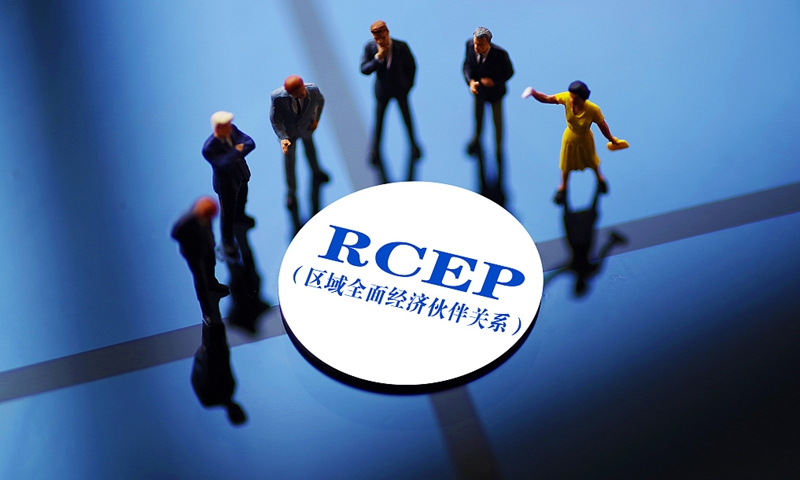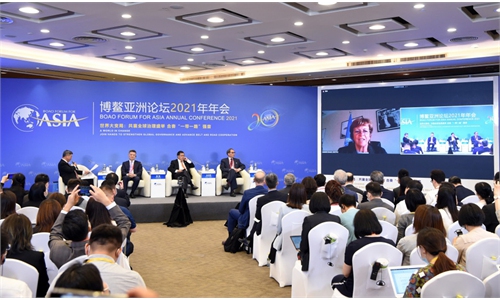RCEP to take effect on Jan 1 in boost for regional cooperation, China’s trade profile

RCEP Photo: VCG
The Regional Comprehensive Economic Partnership (RCEP), the world's biggest trade pact that includes China and over a dozen of other countries, will officially take effect on January 1, 2022, China's Ministry of Commerce (MOFCOM) announced on Wednesday, marking another milestone for regional and global economic cooperation as well as China's expanding trade profile.
In a statement on Wednesday night, the MOFCOM said that the ASEAN Secretary-General has announced that six ASEAN member countries, China, Japan, New Zealand and Australia have deposited the instrument of ratification, and the number has reached the threshold for implementation.
"According to the agreement, RCEP will take effect for the ten countries mentioned above on January 1, 2022," the MOFCOM said.
The six ASEAN countries that have approved the RCEP are Myanmar, Cambodia, Laos, Singapore, Thailand and Vietnam. As of Wednesday, South Korea and four other ASEAN members have not ratified the deal. It was unclear whether the five countries will ratify the deal before the January 1.
China, a main driver for the deal, completed the ratification process for the RCEP on April 15 and has also applied to join the CPTPP. Though both trade pacts are focused on the Asia Pacific, the US is not in either one.
The imminent implementation of the RCEP trade pact is very significant for the economic recovery of the region in the post-COVID era, Bai Ming, deputy director of the International Market Research Institute at the Chinese Academy of International Trade and Economic Cooperation, a think tank under the Ministry of Commerce, told the Global Times on Wednesday.
The RCEP will cover a huge market of 2.2 billion people, accounting for nearly one-third of the world's population, and a total GDP of $26 trillion, according to media reports.
"The trade deal will initially give momentum to the countries signing the pact. More importantly, it will zoom in on the cooperation along industry chains in the Asia-Pacific region and elevate East Asia's position in the world economy," Bai said.
Recovering supplies through shorter supply and value chains remains the biggest challenge for various economies amid the coronavirus pandemic, and the RCEP brings hope of addressing the disruptions, according to Bai.
On Wednesday, New Zealand's Minister of State for Trade and Export Growth Phil Twyford announced the country's ratification of the RCEP, saying that the entry will further accelerate the country's post-COVID economic recovery and local businesses will be able to take advantage of the RCEP's opportunities from early next year.
In listing the benefits to joining the RCEP, the New Zealand trade minister pointed out that there will be more market access opportunities, especially for services and investment, in China and some ASEAN member states.
RCEP is projected to add $186 billion to the world economy and increase New Zealand's GDP by around $2 billion, according to the New Zealand Ministry of Foreign Affairs and Trade.



